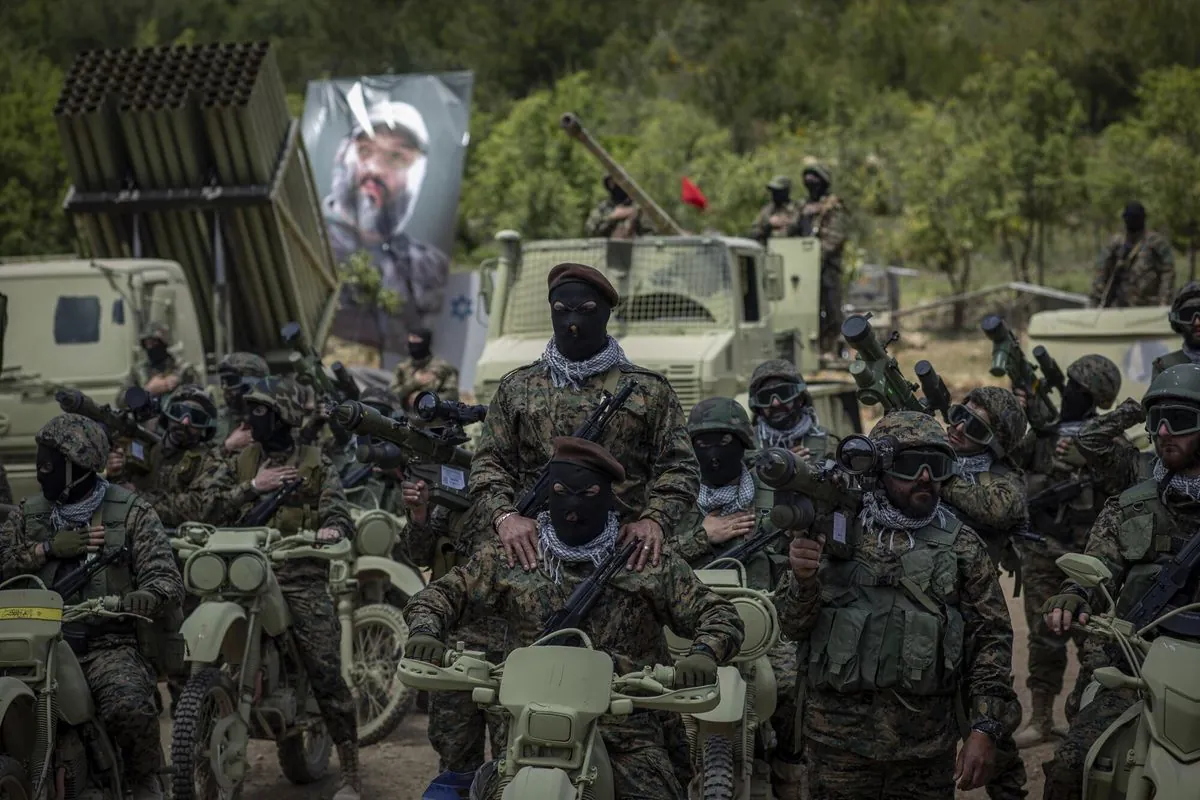On September 17, 2023, Israel launched a covert operation against Hezbollah, marking a significant escalation in the ongoing conflict. This "red button" operation, involving sabotaged pagers, caught the Lebanese militant group off guard and initiated a series of Israeli military successes.
In the year since this operation, Israel has made notable gains against Hezbollah. The Israel Defense Forces (IDF) have conducted strikes deep into Lebanese territory, targeting missile arsenals and eliminating key leaders, including the group's long-time figurehead, Hasan Nasrallah. These actions have significantly weakened Hezbollah's capabilities and boosted Israeli morale.
"There is an Israeli strategy on how to hit Hezbollah. But there is not necessarily a strategy of what comes next, how to get out of it."
However, experts question the long-term impact of these military achievements. Aaron David Miller, a senior fellow at the Carnegie Endowment for International Peace, notes the difficulty in translating these successes into concrete political objectives, such as the safe return of displaced Israelis to their northern homes.
The conflict has taken a heavy toll on Lebanon, with over 2,000 casualties and 1.2 million displaced civilians. This humanitarian crisis underscores the urgent need for a sustainable resolution.
Israel's immediate goal is to create a buffer zone in southern Lebanon, pushing Hezbollah beyond the range of its Kornet anti-tank missiles. However, achieving this objective may require prolonged military engagement, risking a repeat of past incursions that led to protracted conflicts.
The recent developments have had a positive impact on Israeli public opinion. A poll by the Israel Democracy Institute shows that about three-quarters of Israelis now rate the IDF's combat capability as good or excellent. This shift in sentiment has also benefited Prime Minister Benjamin Netanyahu, whose political standing has stabilized after facing criticism for the October 7, 2023, Hamas attacks.
Israel's response to Iran's April 2024 missile barrage remains a point of contention. While some advocate for a strong retaliation, others, including the Biden administration, urge caution to prevent further escalation.
The ongoing conflicts in Gaza, Lebanon, and potential confrontations with Iran highlight the absence of a clear long-term strategy for achieving lasting peace in the region. Michael Milshtein, a former military adviser, warns that without a comprehensive approach, Israel risks being drawn into prolonged wars of attrition on multiple fronts.
As the situation continues to evolve, the international community watches closely, hoping for a diplomatic breakthrough that can bring stability to this volatile region.
